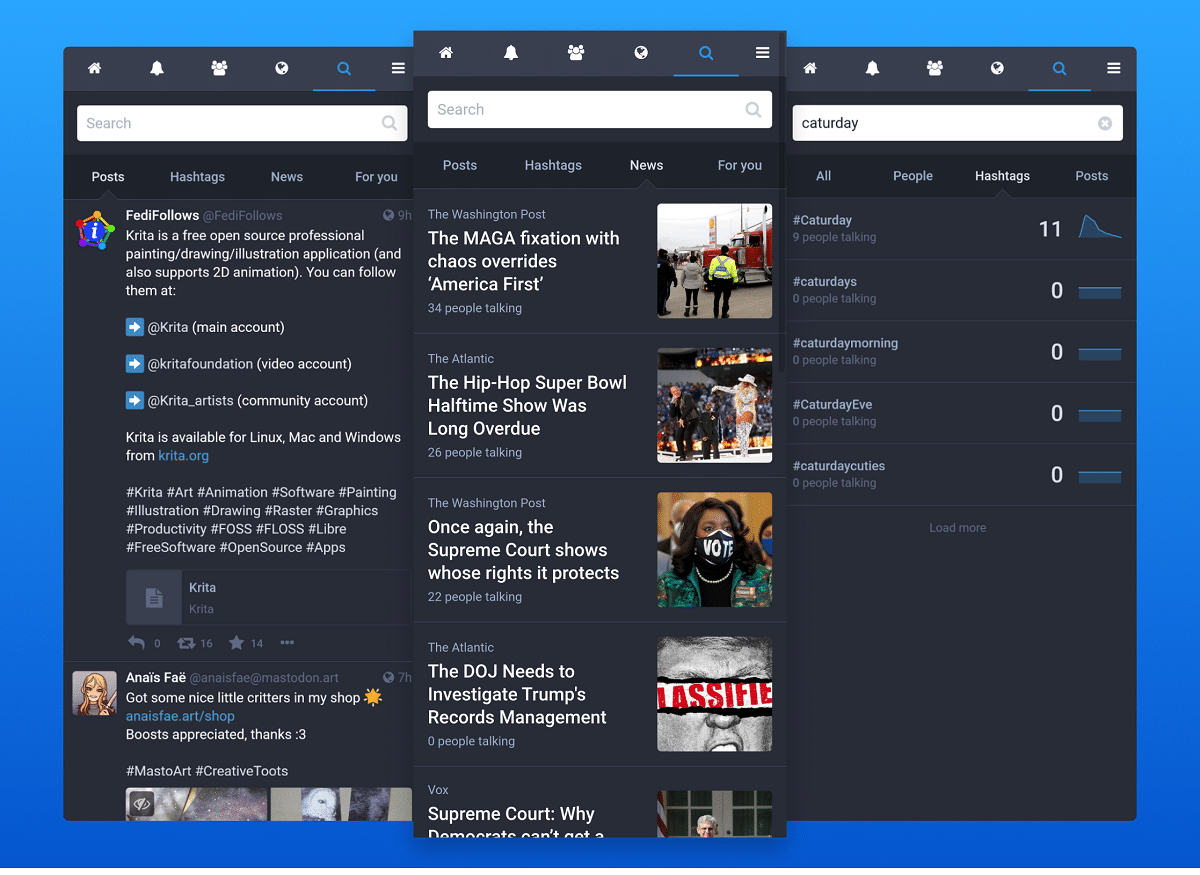
Mastodon is a free and decentralized microblogging social network, similar to Twitter,
Since Elon Musk finalized his purchase of Twitter, some social media app users have been looking for a new home, only to find that there aren't many great options. Twitter co-founder Jack Dorsey is beta testing a new app called Bluesky, but there's no release date yet.
You may not have heard of Mastodon, which has been around since 2016, but is now growing rapidly. Some have decided to flee Twitter for fear that the freedom of expression promised by Elon Musk will turn into a gigantic reign of debauchery.
There may not be a clear alternative to Twitter, a particularly influential, fast-paced, text-heavy, conversational, news-based platform. But Mastodon has gained (a little) popularityAt least among techies.
The service resembles Twitter, with a timeline of brief updates arranged chronologically rather than algorithmically. It allows users to join a multitude of different servers run by various groups and individuals, rather than a central platform controlled by a single company like Twitter, Instagram, or Facebook.
Unlike the main social networks, Mastodon is free and ad-free. It is developed by a non-profit organization led by Mastodon creator Eugen Rochko and is supported by crowdfunding.
Rochko said in an interview that:
Mastodon had gained 230.000 users since October 27, when Musk took over Twitter. It now has 655.000 monthly active users, he said. Twitter reported in July that it had nearly 238 million daily active monetizable users.
"Obviously, it's not as big as Twitter, but it's the biggest number this network has ever seen," said Rochko, who initially created Mastodon more as a project than a consumer product (and, yes, its name was inspired by Twitter). in heavy metal). Mastodon band).
Mastodon is not a single website, but a network of thousands of sites called "instances", also called servers. these servers they are "federated" which means that they are managed by different entities, but can communicate with each other without going through a central system. And the space in which they all exist is called the “*fedivers*”, which some fans call “*the Fedi*”.
But the Mastodon model comes with its own risks. If the server you're joining goes down, you could lose everything, like your email provider shutting down.
A Mastodon server administrator also has ultimate control over everything you do and as a result, many top Mastodon users are tech-savvy or tech-savvy.
Sarah T. Roberts, an associate professor at UCLA and faculty director at the UCLA Center for Critical Internet Research, started using Mastodon in earnest on Oct. 30, just after Musk took over Twitter. She created another account years ago, she said, but didn't really get into it until recently because of Twitter's popularity among academics.
Roberts, who worked at Twitter as a staff researcher earlier this year while on a leave of absence from UCLA, said she was inspired to start using Mastodon because of concerns about how content moderation on Twitter might change under the control of Musk. She suspects that some newcomers are simply fed up with social media companies that capture a lot of user data and are driven by advertising.
“Mastodon is a volunteer project developed largely by one person. And Twitter is a company that is apparently worth $44 billion,” she said. "If a group of users got together and said, 'Hey, we want to come together and create an alternative,' their ability to access funding would be far less than Elon Musk's ability to access funding."
Despite its growing influence, Mastodon's design makes it difficult to fund, according to Nathan Schneider, a researcher of technology ownership models at the University of Colorado at Boulder, and that makes it unlikely to dethrone a website like Twitter.